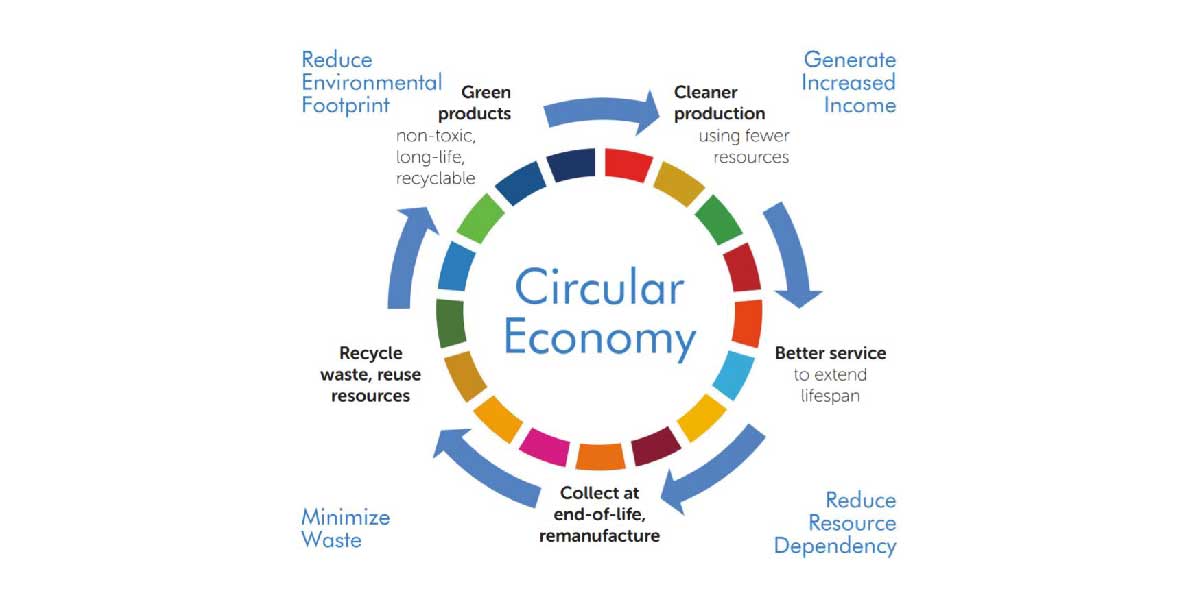
Policymakers and experts from various UN member states gathered to facilitate exchanges on best practices and emerging innovations, and promoted principles and practices on circular economy during the (UNIDO) Global Consultations on Circular Economy held on May 10 to 12, 2021.
The transition to a circular economy aims to adopt resource efficient and cleaner production systems to allow manufacturers to increase their competitiveness while protecting the environment. By saving big amounts of water, energy and raw materials, manufacturers can significantly reduce their production costs, produce less waste, therefore optimizing their production.
As a Philippine delegate, Climate Change Commissioner Rachel Herrera said that the country further endeavors to catalyze actions towards fostering a circular economy.
“We believe that the Circular Economy is the way out of humankind’s dilemma because of the serious mistakes committed in the past. Circular Economy has a very simple proposition: humanity to mimic nature, take only from it what we need to address our wants and not to feed our greed. Additionally, it teaches us to practice prudence, using resources already extracted the longest time possible through recycling and not generating harmful residuals,” Herrera stated.
The five-session consultations convened by UNIDO together with the governments of Austria and Mexico aimed to consider ways and means to promote circular economy principles and practices, particularly in developing countries, and identify barriers while devising action-oriented solutions.
In the first session, Undersecretary Mercedita A. Sombilla of the National Economic and Development Authority (NEDA) – Regional Development Group discussed how various solutions offered by a circular economy can help tackle some of the most pressing challenges, boost climate action, and accelerate the progress towards implementing the 2030 Agenda for Sustainable Development.
“The Philippines formulated the Philippine Action Plan for Sustainable Consumption and Production (PAP4SCP), consistent with our national priorities and our long-term vision of a strongly rooted, comfortable, and secure life for all (Ambisyon Natin 2040). This Action Plan intends to steer behavioral change among Filipinos by choosing green goods and services and shift to a more sustainable and climate-smart lifestyle in the long run. It pushes the government in creating the enabling policy environment to steer private sector actions towards sustainable development,” said Sombilla.
“These actions include: undertaking life cycle assessments, promoting extended producer responsibility, recovering industrial wastes for other useful purposes, especially electronic wastes, which will increase as we digitize our processes and approach the Fourth Industrial Revolution, and pursuing energy-efficient and climate-friendly technologies/equipment, to support our climate commitments,” Sombilla added.
The Philippine government commits to take a proactive role in the uptake of the circular economy as a measure to increase resilience and adaptive capacity identified under the country’s first Nationally Determined Contribution or climate target. The Philippine Congress is also deliberating on the passage of a national regulation on single-use plastics, as part of the whole suite of solutions, including establishing Extended Producer Responsibility, improving waste management, incentivizing consumers, retailers, and manufacturers, exploring alternatives, and raising awareness.
Circular economy is defined as an alternative to the traditional linear economic model where resources are kept in use for as long as possible, maximum value is extracted from them, and waste is relocated from the end of the supply chain to the beginning, giving the used materials a new life.
The transition to a circular economy aims to adopt resource efficient and cleaner production systems to allow manufacturers to increase their competitiveness while protecting the environment. By saving big amounts of water, energy and raw materials, manufacturers can significantly reduce their production costs, produce less waste, therefore optimizing their production.
Representatives from Africa, Europe, Latin America and the Caribbean, and Asia and the Pacific countries, including the Philippines, discussed and deliberated the barriers to the adoption of circular economy principles in developing countries and economies in transition, the approaches to overcome these barriers and the support required from the international community.



















